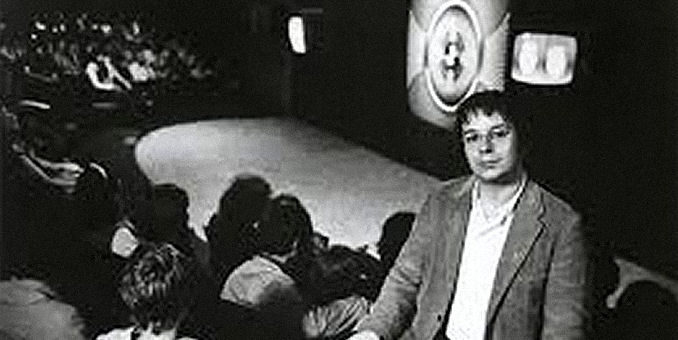Ken Shapiro, the writer, director and cast member of the influential sketch comedy film The Groove Tube, died last week on November 18 at his home in Los Cruces, New Mexico after a battle with cancer. He was 76.
Originally produced for exhibit at the Channel One theater in New York, a venue that presented film and video work to audiences on three large screens, The Groove Tube would go on to prove to be far more influential than its origins would suggest. The structure of the film spoofed television programming of the day, from a children’s show host segueing into a reading from the 18th century erotic novel Fanny Hill to political talk shows that get over run by their catering to manly beer commercials (“Grab onto Butz!”).
In addition to writing and directing the film, Shapiro also starred alongside then unknown comics Richard Belzer and Chevy Chase. Chase was a founding member of the Channel One theater group and was currently a cast member of The National Lampoon Radio Hour alongside a number of other young comics who would migrate over to television in a few years to form the Night Ready For Prime Time Players for NBC’s new Saturday Night series. Belzer was also a performer at Channel One while doing stand up at a number of New York City comedy clubs.
The film’s structure was an obvious influence on Kentucky Fried Movie, the first film from the creator’s of the classic comedy Airlane! – Jerry Zucker, Jim Abrahams and David Zucker – as well as television’s SCTV.
Shaprio’s show business career started at the age of two months, when his parents began getting him commercial work. As a child star he appeared under the Kenny Sharp and in the days of live television often appeared on Milton Berle’s Texaco Star Theater as “The Kid.”
The only other feature that Shapiro wrote and directed was the 1981 comedy Modern Problems. That film reunited him with Groove Tube co-star Chase, who starred as an out of work air traffic controller who gets psychic powers after being drenched in toxic waste. Although the film was a modest hit, Shapiro reportedly grew uncomfortable in the corporate structure of Hollywood and left show business, eventually settling in New Mexico.



